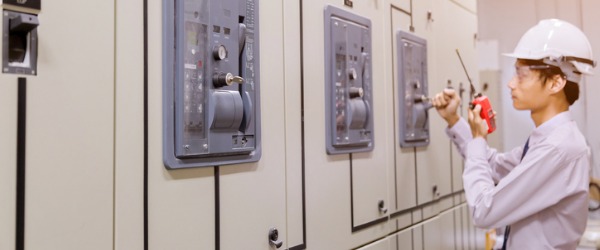What is a Marine Electrician?
A marine electrician is someone who installs and takes care of electrical equipment and systems on board ships and boats. He or she may also handle emergency repairs on ships in port, in dry dock, and out at sea. Simple electrical systems fall under the responsibilities of a marine electrician, while more advanced technology may require a marine engineer.
What does a Marine Electrician do?

A marine electrician is specifically trained to work with ships and with water at the same time. Water and electricity don't mix, therefore a marine electrician must take special precautions when installing components and also understand the dynamics of water on the electrical system. This ensures the safety of guests and crew once the vessel is in operation.
Whether fixing a radio, replacing a faulty switch, or locating an electrical short, a marine electrician is responsible in keeping a ship's electronics in working order. Typically, a marine electrician is able to install wiring, batteries, engines, and electrical equipment like navigation and radio supplies. Work may involve installing components for new electrical systems, or upgrading older systems by replacing parts or wire. When installing a new electrical system, the marine electrician often handles gauges, outlets, light fixtures, and of course the wires that link everything together.
Marine electricians are also responsible for repairs and maintenance, testing equipment regularly with voltmeters and ohmmeters to make sure everything is functioning properly. In the event of problems with the electrical system, the marine electrician can run diagnostics and perform repairs. It may also be necessary to replace aging equipment like outdated navigation systems. An important part of the job is paying attention to maintenance schedules and keeping careful records of work that has been done.
Duties of a marine electrician:
- Repair or replace wiring equipment or fixtures
- Examine electrical wiring, equipment, or fixtures, using testing devices like ohmmeters, voltmeters, or oscilloscopes
- Use power construction equipment, measuring devices, power tools, and testing equipment
- Diagnose faulty systems or parts, using equipment and hand tools to find the reason for a breakdown
- Inspect electrical systems, equipment, or parts to spot hazards or defects
- Prepare sketches or follow blueprints to see the placement of wiring or equipment
- Work on the installation of ground leads and connect power cables to equipment
- Direct or train other employees to put in, maintain, or repair electrical wiring, equipment, or fixtures
- Perform routine and annual maintenance
What is the workplace of a Marine Electrician like?
Marine electricians can work for a variety of employers, such as the military, government agencies, shipbuilders, and maintenance firms that provide support services for boats and ships. At times, working conditions can be cramped, as a marine electrician may need to work below decks and in crawl spaces. Conditions can also be hot and dirty, especially when a ship is underway and requires repairs.